44 start with S start with S
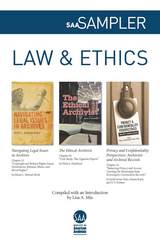
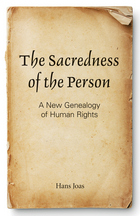
What are the origins of the idea of human rights and universal human dignity? How can we most fully understand—and realize—these rights going into the future? In The Sacredness of the Person, internationally renowned sociologist and social theorist Hans Joas tells a story that differs from conventional narratives by tracing the concept of human rights back to the Judeo-Christian tradition or, alternately, to the secular French Enlightenment. While drawing on sociologists such as Émile Durkheim, Max Weber, and Ernst Troeltsch, Joas sets out a new path, proposing an affirmative genealogy in which human rights are the result of a process of “sacralization” of every human being.
According to Joas, every single human being has increasingly been viewed as sacred. He discusses the abolition of torture and slavery, once common practice in the pre-18th century west, as two milestones in modern human history. The author concludes by portraying the emergence of the UN Declaration of Human Rights of 1948 as a successful process of value generalization. Joas demonstrates that the history of human rights cannot adequately be described as a history of ideas or as legal history, but as a complex transformation in which diverse cultural traditions had to be articulated, legally codified, and assimilated into practices of everyday life. The sacralization of the person and universal human rights will only be secure in the future, warns Joas, through continued support by institutions and society, vigorous discourse in their defense, and their incarnation in everyday life and practice.

"A 'must' for readers interested in the borderlands between philosophy, hagiography, and ethics."—Mark I. Wallace, Religious Studies Review
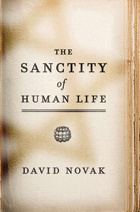
Heated debates are not unusual when confronting tough medical issues where it seems that moral and religious perspectives often erupt in conflict with philosophical or political positions. In The Sanctity of Human Life, Jewish theologian David Novak acknowledges that it is impossible not to take into account the theological view of human life, but the challenge is how to present the religious perspective to nonreligious people. In doing so, he shows that the two positions—the theological and the philosophical—aren't as far apart as they may seem.
Novak digs deep into Jewish scripture and tradition to find guidance for assessing three contemporary controversies in medicine and public policy: the use of embryos to derive stem cells for research, socialized medicine, and physician-assisted suicide. Beginning with thinkers like Plato, Aristotle, Kant, and Nietsche, and drawing on great Jewish figures in history—Maimonides, Rashi, and various commentators on the Torah (written law) and the Mishnah (oral law)—Novak speaks brilliantly to these modern moral dilemmas.
The Sanctity of Human Life weaves a rich and sophisticated tapestry of evidence to conclude that the Jewish understanding of the human being as sacred, as the image of God, is in fact compatible with philosophical claims about the rights of the human person—especially the right to life—and can be made intelligible to secular culture. Thus, according to Novak, the use of stem cells from embryos is morally unacceptable; the sanctity of the human person, and not capitalist or socialist approaches, should drive our understanding of national health care; and physician-assisted suicide violates humankind's fundamental responsibility for caring for one another.
Novak's erudite argument and rigorous scholarship will appeal to all scholars and students engaged in the work of theology and bioethics.

In an engaging and personal style, Joseph shows how his commitment to applying moral and ethical principles to large groups and institutions played out in his work in the civil rights movement in Alabama and as a college chaplain in California in the turbulent 1960s. His time later as vice president of the Cummins Engine Company provided an opportunity to promote corporate ethics, and his tenure as Under Secretary of the Interior in the Carter Administration underscored the difficulty and weight of making the right decisions while balancing good policy analysis with transcendent moral principles.
In 1996 President Clinton selected Joseph to become the United States Ambassador to South Africa. His recollections of working with Nelson Mandela, whom he describes as a noble and practical politician, and his observations about what he learned from Desmond Tutu and others about reconciliation contain some of the book’s most poignant passages.
Saved for a Purpose is unique, as Joseph combines his insights from working to integrate values into America’s public and private sectors with his long engagement with ethics as an academic discipline and as a practical guide for social behavior. Ultimately, it reflects Joseph’s passionate search for values that go beyond the personal to include the ethical imperatives that should be applied to the communal.

“My interest in [Max] Scheler’s critique of Kant runs back nearly a decade…. The more I read of Scheler, the more I began to see the value of a project dealing with his critique of Kant in Der Formalismus in der Ethik und die Materiale Wetethik, which would possess the virtue of focusing in a single project three important strands of philosophical interest: phenomenology, Kantianism, and ethics….
“The study is divided into six chapters and two appendices. Each of the chapters constituting the body of the work contains a brief analysis of the Kantian position or discussion of the basic questions at issue in it, an exposition of Scheler’s critique of the Kantian position and its presuppositions, and a detailed appraisal of Scheler’s critique.”—from the introduction by the author

Many scientists today think of the universe as essentially purposeless. Likewise, modern and postmodern philosophers have often been suspicious of any religious claims that the natural world embodies and eternal meaning or teleology. Not all scientific thinkers subscribe to this cosmic pessimism, however, and some would even argue that contemporary knowledge is consistent with a religious sense of cosmic purpose.
This stimulating book offers candid reflections on the question of cosmic purpose written both by prominent scientists and by scholars representing the world's religious traditions. Examining the issue from a wide variety of perspectives, this is the only current book to deal with cosmic purpose from an interreligious and interdisciplinary perspective.
Here scientists such as physicist Andrei Linde and biologist Francisco Ayala come face to face with Islamic scholar Seyyed Hossein Nasr, Hindu philosopher Anindita Niyogi Balslev, and others. They examine such perplexing issues as the possible existence of multiple universes and the implications of seemingly purposive features in life. The contributions address the question of whether a religiously-based notion of a purposeful cosmos is consistent with the latest scientific understanding of nature, and whether theology can affirm the presence of divine action without contradicting science.
These essays will challenge readers to ponder their own place in the cosmos as they seek to interpret the visions of the world's great spiritual traditions in the light of natural science.
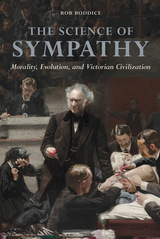
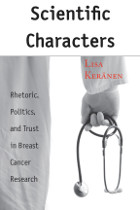

Scientists at War examines the ethical debates that severely tested the American scientific community during the Cold War. Sarah Bridger highlights the contributions of scientists to military technologies and strategic policymaking, from the dawning atomic age in the 1940s through the Strategic Defense Initiative (“Star Wars”) in the 1980s, which sparked a cross-generational opposition among scientists.
The Manhattan Project in the early 1940s and the crisis provoked by the launch of Sputnik in 1957 greatly enhanced the political clout of American scientists. Yet many who took up government roles felt a duty to advocate arms control. Bridger investigates the internal debate over nuclear weapons policy during the Eisenhower and Kennedy administrations, when scientific advisors did not restrict themselves to technical assessments but made an impassioned moral case for a nuclear test ban. The relationship between government and science began to fray further during the Vietnam War, as younger scientists inside and outside of government questioned the morality of using chemical defoliants, napalm, and other non-nuclear weapons. With campuses erupting in protest over classified weapons research conducted in university labs, many elder statesmen of science, who once believed they could wield influence from within, became alienated. The result was a coalition that opposed “Star Wars” during the 1980s—and a diminished role for scientists as counselors to future presidents.

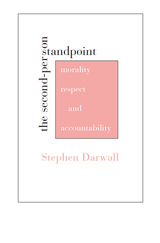
Why should we avoid doing moral wrong? The inability of philosophy to answer this question in a compelling manner—along with the moral skepticism and ethical confusion that ensue—result, Stephen Darwall argues, from our failure to appreciate the essentially interpersonal character of moral obligation. After showing how attempts to vindicate morality have tended to change the subject—falling back on nonmoral values or practical, first-person considerations—Darwall elaborates the interpersonal nature of moral obligations: their inherent link to our responsibilities to one another as members of the moral community.
As Darwall defines it, the concept of moral obligation has an irreducibly second-person aspect; it presupposes our authority to make claims and demands on one another. And so too do many other central notions, including those of rights, the dignity of and respect for persons, and the very concept of person itself. The result is nothing less than a fundamental reorientation of moral theory that enables it at last to account for morality's supreme authority—an account that Darwall carries from the realm of theory to the practical world of second-person attitudes, emotions, and actions.

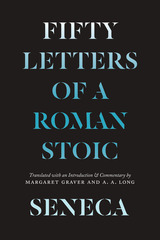
“There is only one course of action that can make you happy. . . . rejoice in what is yours. What is it that is yours? Yourself; the best part of you.”
In the year 62, citing health issues, the Roman philosopher Seneca withdrew from public service and devoted his time to writing. His letters from this period offer a window onto his experience as a landowner, a traveler, and a man coping with the onset of old age. They share his ideas on everything from the treatment of enslaved people to the perils of seafaring, and they provide lucid explanations for many key points of Stoic philosophy.
This selection of fifty letters brings out the essentials of Seneca’s thought, with much that speaks directly to the modern reader. Above all, they explore the inner life of the individual who proceeds through philosophical inquiry from a state of emotional turmoil to true friendship, self-determination, and personal excellence.

A provocative call to rethink America's values in health care.

There is no society without right and wrong. There is no society without sin. But every culture has its own favorite list of trespasses. Perhaps the most influential of these was drawn up by the Church in late antiquity: the Seven Deadly Sins. Pride, sloth, gluttony, envy, anger, lust, and greed are not forbidden acts but the passions that lead us into temptation. Aviad Kleinberg, one of the most prominent public intellectuals in Israel, examines the arts of sinning and of finger pointing. What is wrong with a little sloth? Where would haute cuisine be without gluttony? Where would we all be without our parents’ lust? Has anger really gone out of style in the West? Can consumer culture survive without envy and greed? And with all humility, why shouldn’t we be proud?
With intellectual insight and deadpan humor, Kleinberg deftly guides the reader through Jewish, Christian, and Greco-Roman thoughts on sin. Each chapter weaves the past into the present and examines unchanging human passions and the deep cultural shifts in the way we make sense of them. Seven Deadly Sins is a compassionate, original, and witty look at the stuff that makes us human.

Sex and Gender: Christian Ethical Reflections contains some of the subject’s most important analyses in recent decades. The collection covers a wide range of topics: same-sex marriage, sexual minorities and biblical interpretation, sex and power, sexual harassment and sexual abuse, HIV/AIDS and prevention strategy, the military and masculinities, mobile porn and sexting, human trafficking, moral discernment, and more. Contributors represent various theological traditions and draw on scriptural texts as well as such disciplines as philosophy, sociology, psychology, and the life sciences. Each essay is followed by a set of discussion questions—for the classroom or for students to use as an assignment outline—and suggestions for further reading and research. Teachers and students of Christian ethics will appreciate this multidisciplinary approach to one of the most divisive and controversial issues in contemporary culture.
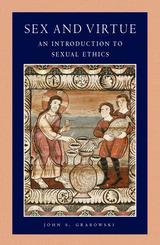
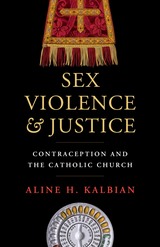
In 1968, Pope Paul VI published Humanae vitae, the encyclical that reaffirmed the Catholic Church’s continued opposition to the use of any form of artificial contraception. In Sex, Violence, and Justice: Contraception and the Catholic Church, Aline Kalbian outlines the Church’s position against artificial contraception as principally rooted in three biblical commandments. In addition, Kalbian shows how discourses about sexuality, both in the Church and in culture, are often tied to discourses of violence, harm and social injustice. These ties reveal that sexual ethics is never just about sex; it is about the vulnerability of the human body and the challenges humans face in trying to maintain just and loving relationships.
As Kalbian explores and contrasts the Catholic Church’s stance toward condoms and HIV/AIDS, emergency contraception in cases of rape, and contraception and population control, she underscores how contraception is not just a private decision, but a deeply social, cultural, and political one, with profound global implications. Kalbian concludes that even the most tradition-bound communities rely on justificatory schemes that are fluid and diverse. Taking this diversity seriously helps us to understand how religious traditions change and develop.
Sex, Violence, and Justice will be of interest to students and scholars of Catholic moral theology, sexual ethics, religion and society, gender and religion, as well as to specialists and practitioners in public health.
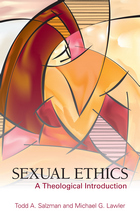
Two principles capture the essence of the Catholic tradition on sexual ethics: that each and every marriage act must remain open to the transmission of life, and that any human genital act must occur within the framework of marriage. In the Catholic tradition, moral sexual activity is institutionalized within the confines of marriage and procreation, and sexual morality is marital morality.
But theologians Todd Salzman and Michael Lawler contend that there is a disconnect between many of the Church’s absolute sexual norms and other theological and intellectual developments explicitly recognized and endorsed in the Catholic tradition, especially since the Second Vatican Council. These developments include the shift from a primary static worldview to a historically conscious worldview, one that recognizes reality as dynamic, evolving, changing, and particular. By employing such a historically conscious worldview, alternative claims about the moral legitimacy of controversial topics such as contraception, artificial reproduction, and homosexual marriage can faithfully emerge within a Catholic context. Convinced of the central role that love, desire, and fertility play in a human life, and also in the life of Christian discipleship, the authors propose an understanding of sexuality that leads to the enhancement of human sexual relationships and flourishing.
This comprehensive introduction to Catholic sexual ethics—complete with thought-provoking study questions at the end of each chapter—will be sure to stimulate dialogue about sexual morality between Catholic laity, theologians, and the hierarchy. Anyone seeking a credible and informed Catholic sexual ethic will welcome this potentially revolutionary book.

Two principles capture the essence of the official Catholic position on the morality of sexuality: first, that any human genital act must occur within the framework of heterosexual marriage; second, each and every marriage act must remain open to the transmission of life. In this comprehensive overview of Catholicism and sexuality, theologians Todd A. Salzman and Michael G. Lawler examine and challenge these principles. Remaining firmly within the Catholic tradition, they contend that the church is being inconsistent in its teaching by adopting a dynamic, historically conscious anthropology and worldview on social ethics and the interpretation of scripture while adopting a static, classicist anthropology and worldview on sexual ethics.
While some documents from Vatican II, like Gaudium et spes ("the marital act promotes self-giving by which spouses enrich each other"), gave hope for a renewed understanding of sexuality, the church has not carried out the full implications of this approach. In short, say Salzman and Lawler: emphasize relationships, not acts, and recognize Christianity's historically and culturally conditioned understanding of human sexuality. The Sexual Person draws historically, methodologically, and anthropologically from the best of Catholic tradition and provides a context for current theological debates between traditionalists and revisionists regarding marriage, cohabitation, homosexuality, reproductive technologies, and what it means to be human. This daring and potentially revolutionary book will be sure to provoke constructive dialogue among theologians, and between theologians and the Magisterium.

Although the linking of "ethics" and "politics" may seem more like the ingredients for a comedian's monologue, it is a sober issue and one that affects every American—especially when it comes to state politics, where the cynical might say ethics can never survive. To find examples of the latest corruption du jour, all one has to do is turn to the newspaper, or switch on the local newscast (think Illinois and New Jersey).
Scandals have been ubiquitous since the beginning of the Republic, but it wasn't until 1954 that ethical self-regulation began to move legislatively beyond bribery statutes to address deeper issues—those which, in New York Governor Thomas Dewey's words, skulked in the "shadowlands of conduct." Rosenson begins her exploration with that moment when New York became the first state to enact a general ethics law, setting standards and guidelines for behavior. Unforgiving and illuminating, she examines the many laws that have been enacted since and the reasons that many of these law came into being.
It is crucial to the functioning of a democratic government to understand how and why ethics laws vary across legislatures, and it is surprising to discover that many states have become far more stringent than the U.S. Congress in laws and regulations. Using both qualitative historical sources and rigorous statistical analysis, Rosenson examines when and why, from 1954 to the present, legislators have enacted ethics laws that seem to threaten their own well-being. Among the economic, political, and institutional factors considered that have helped or hindered the passage of these laws, the most consistent was pure scandal, abetted by the media. To have good government, one must be able to trust it, and this book can help all citizens understand and find their way out of the shadowlands into the light.

Ethics, he claims, has been seen by its most powerful theorists as a discourse of “shadows,” a characteristic disturbance of thought in the presence of the other, a source of doubts rather than certainty. At the same time, however, ethics includes an element of violence, even blindness and “fundamentalism,” a crushing drive to clarity and resolution. Contemporary thinkers, Harpham argues, have been unwilling to accept this account of ethics and the obligations it would impose, and have, as a consequence, cultivated social and intellectual marginality as the only site of virtue, the only position in which critical intelligence is at home. They have, he contends, failed to “imagine the center,” to take up the true intellectual and worldly challenge of ethics.
Tracking these issues and energies in debates about enlightenment, the politics of the aesthetic, the nature of rationality, and the worldly contexts of theory, Harpham demonstrates in compelling detail the ubiquity and true difficulty of ethics. Shadows of Ethics also revives a neglected genre, the intellectual portrait, with extended meditations on Jacques Derrida, Martha Nussbaum, Fredric Jameson, Geoffrey Hartman, and Noam Chomsky.
The book will interest literary critics, philosophers, cultural critics, and all those interested in the ethical character of intellectual work.

Should we draw an analogy between Shakespeare’s tyrants—Richard III, Julius Caesar, Macbeth, and King Lear—and Donald Trump? In Shakespeare and Trump, Jeffrey Wilson applies literary criticism to real life, examining plot, character, villainy, soliloquy, tragedy, myth, and metaphor to identify the formal features of the Trump phenomenon, and its hidden causes, structure, and meanings.
Wilsonapproaches his comparison prismatically. He first considers two high-concept (read: far-fetched) Shakespeare adaptations penned by Trump’s former chief political strategist Steve Bannon. He looks at University of Pennsylvania students protesting Trump by taking down a monument to Shakespeare. He reads Trump’s first 100 days in office against Netflix’s House of Cards. Wilson also addresses the summer 2017 Shakespeare in the Park production of Julius Caesar wherein an assassination of a Trump-ian leader caused corporations to withdraw sponsorship.
These stories reveal a surprising—and bizarre—relationship between the provincial English playwright and the billionaire President of the United States, ostensibly a medieval king living in a modern world. The comparison reveals a politics that blends villainy and comedy en route to tragedy.
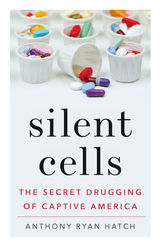
A critical investigation into the use of psychotropic drugs to pacify and control inmates and other captives in the vast U.S. prison, military, and welfare systems
For at least four decades, U.S. prisons and jails have aggressively turned to psychotropic drugs—antidepressants, antipsychotics, sedatives, and tranquilizers—to silence inmates, whether or not they have been diagnosed with mental illnesses. In Silent Cells, Anthony Ryan Hatch demonstrates that the pervasive use of psychotropic drugs has not only defined and enabled mass incarceration but has also become central to other forms of captivity, including foster homes, military and immigrant detention centers, and nursing homes.
Silent Cells shows how, in shockingly large numbers, federal, state, and local governments and government-authorized private agencies pacify people with drugs, uncovering patterns of institutional violence that threaten basic human and civil rights. Drawing on publicly available records, Hatch unearths the coercive ways that psychotropics serve to manufacture compliance and docility, practices hidden behind layers of state secrecy, medical complicity, and corporate profiteering.
Psychotropics, Hatch shows, are integral to “technocorrectional” policies devised to minimize public costs and increase the private profitability of mass captivity while guaranteeing public safety and national security. This broad indictment of psychotropics is therefore animated by a radical counterfactual question: would incarceration on the scale practiced in the United States even be possible without psychotropics?
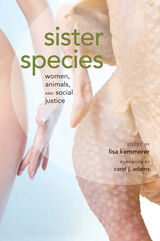
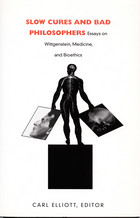
As Elliott explains in his introduction, Wittgenstein’s philosophy runs against the grain of most contemporary bioethics scholarship, which all too often ignores the context in which moral problems are situated and pays little attention to narrative, ethnography, and clinical case studies in rendering bioethical judgments. Such anonymous, impersonal, rule-writing directives in which health care workers are advised how to behave is what this volume intends to counteract. Instead, contributors stress the value of focusing on the concrete particulars of moral problems and write in the spirit of Wittgenstein’s belief that philosophy should be useful. Specific topics include the concept of “good dying,” the nature of clinical decision making, the treatment of neurologically damaged patients, the moral treatment of animals, and the challenges of moral particularism.
Inspired by a philosopher who deplored “professional philosophy,” this work brings some startling insights and clarifications to contemporary ethical problems posed by the realities of modern medicine.
Contributors. Larry Churchill, David DeGrazia, Cora Diamond, James Edwards, Carl Elliott, Grant Gillett, Paul Johnston, Margaret Olivia Little, James Lindemann Nelson, Knut Erik Tranoy
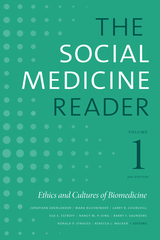
Volume 1, Ethics and Cultures of Biomedicine, contains essays, case studies, narratives, fiction, and poems that focus on the experiences of illness and of clinician-patient relationships. Among other topics the contributors examine the roles and training of professionals alongside the broader cultures of biomedicine; health care; experiences and decisions regarding death, dying, and struggling to live; and particular manifestations of injustice in the broader health system. The Reader is essential reading for all medical students, physicians, and health care providers.
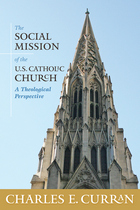
How does the Church function in the world? What is it called to do, and what does it actually do? Charles E. Curran explores the social mission of the U.S. Catholic Church from a theological perspective, analyzing and assessing four aspects: the importance of social mission, who carries it out, how it is carried out, and the roles that the Church and individual Catholics play in supporting these efforts.
In the early and mid-twentieth century the Catholic Church in the United States tended to focus its social mission on its own charities, hospitals, and schools. But the Second Vatican Council called the Church to a new understanding of social mission, deepening its involvement in and commitment to civic, social, and political life in the United States and abroad. Curran devotes particular attention to three issues that have reflected the Church's strong sense of social mission since that time: abortion, war and peace, and labor.
The Social Mission of the U.S. Catholic Church describes the proper role of bishops, institutions, and movements in the Church, but insists that the primary role belongs to all the baptized members of the Church as they live out the social mission in their daily lives.
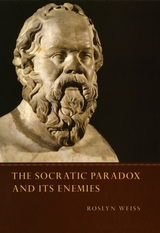

One of the foremost philosophers of our time, Robert Nozick continues the Socratic tradition of investigation. This volume, which illustrates the originality, force, and scope of his work, also displays Nozick’s trademark blending of extraordinary analytical rigor with intellectual playfulness. As such, Socratic Puzzles testifies to the great pleasure that both doing and reading philosophy can be.
Comprising essays and philosophical fictions, classics and new work, the book ranges from Socrates to W. V. Quine, from the implications of an Israeli kibbutz to the flawed arguments of Ayn Rand. Nozick considers the figure of Socrates himself as well as the Socratic method (why is it a “method” of getting at the truth?). Many of these essays bring classic methods to bear on new questions about choice. How should you choose in a disconcerting situation (“Newcomb’s Problem”) when your decisions are completely predictable? Why do threats and not offers typically coerce our choices? How do we make moral judgments when we realize that our moral principles have exceptions? Other essays present new approaches to familiar intellectual puzzles, from the stress on simplicity in scientific hypotheses to the tendency of intellectuals to oppose capitalism.
As up to date as the latest reflections on animal rights; as perennial as the essentials of aesthetic merit (doggerel by Isaac Newton goes to prove that changing our view of the world won’t suffice); as whimsical as a look at how some philosophical problems might appear from God’s point of view: these essays attest to the timeliness and timelessness of Nozick’s thinking. With a personal introduction, in which Nozick discusses the origins, tools, and themes of his work, Socratic Puzzles demonstrates how philosophy can constitute a way of life.

Somatics in Dance, Ecology, and Ethics explores the relationships between self, world, and earth to understand the experience of being alive and corporeal. In doing so, Sondra Fraleigh develops a philosophy of an ethical world gaze that promises to enliven the senses. Chapters borrow from wide-ranging intellectual influences—phenomenology, Buddhism, butoh, dialogics, aesthetics, poetry, feminism, ecology, and more—Fraleigh describes the ways somatics can help people to feel well, practice empathetic communication, and recognize the psychic, unpredictable edges of experience as they move. An interview with Amanda Williamson complements the chapters. “The body is the fascinating home for all our dispositions,” Fraleigh tells hers. “Spiritual qualities are embodied. We dance and sing them into being.”

Government agencies and commissions, courts, and legislatures have during the past several decades produced reports, rendered decisions, and passed laws that have both defined the fundamental issues in the field of bioethics and established ways of managing them in our society. Providing a history of these key bioethical decisions, this Source Book in Bioethics is the first and only comprehensive collection of the critical public documents in biomedical ethics, including many hard-to-find or out-of-print materials.
Covering the period from 1947 to 1995, this volume brings together core legislative documents, court briefs, and reports by professional organizations, public bodies, and governments around the world. Sections on human experimentation, care of the terminally ill, genetics, human reproduction, and emerging areas in bioethics include such pivotal works as "The Nuremberg Code," "The Tuskegee Report," and "In the Matter of Baby M," as well less readily available documents as "The Declaration of Inuyama," the Council for International Organizations of Medical Sciences statement on genetic engineering, and "The Warnock Committee Report" on reproductive technologies from the United Kingdom. Three eminent scholars in the field provide brief introductions to each document explaining the significance of these classic sources.
This historical volume will be a standard text for courses in bioethics, health policy, and death and dying, and a primary reference for anyone interested in this increasingly relevant field.
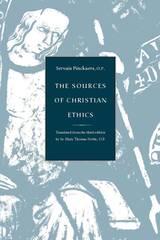
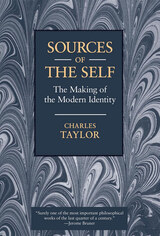
In this extensive inquiry into the sources of modern selfhood, Charles Taylor demonstrates just how rich and precious those resources are. The modern turn to subjectivity, with its attendant rejection of an objective order of reason, has led—it seems to many—to mere subjectivism at the mildest and to sheer nihilism at the worst. Many critics believe that the modern order has no moral backbone and has proved corrosive to all that might foster human good. Taylor rejects this view. He argues that, properly understood, our modern notion of the self provides a framework that more than compensates for the abandonment of substantive notions of rationality.
The major insight of Sources of the Self is that modern subjectivity, in all its epistemological, aesthetic, and political ramifications, has its roots in ideas of human good. After first arguing that contemporary philosophers have ignored how self and good connect, the author defines the modern identity by describing its genesis. His effort to uncover and map our moral sources leads to novel interpretations of most of the figures and movements in the modern tradition. Taylor shows that the modern turn inward is not disastrous but is in fact the result of our long efforts to define and reach the good. At the heart of this definition he finds what he calls the affirmation of ordinary life, a value which has decisively if not completely replaced an older conception of reason as connected to a hierarchy based on birth and wealth. In telling the story of a revolution whose proponents have been Augustine, Montaigne, Luther, and a host of others, Taylor’s goal is in part to make sure we do not lose sight of their goal and endanger all that has been achieved. Sources of the Self provides a decisive defense of the modern order and a sharp rebuff to its critics.

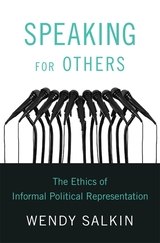
A political philosopher dissects the duties and dilemmas of the unelected spokesperson, from Martin Luther King, Jr., to Greta Thunberg.
Political representation is typically assumed to be the purview of formal institutions and elected officials. But many of the people who represent us are not senators or city councilors—think of Martin Luther King, Jr., or Malala Yousafzai or even a neighbor who speaks up at a school board meeting. Informal political representatives are in fact ubiquitous, often powerful, and some bear enormous responsibility. In Speaking for Others, political philosopher Wendy Salkin develops the first systematic conceptual and moral analysis of informal political representation.
Salkin argues that informal representation can be a political lifeline, particularly for oppressed and marginalized groups that are denied representation in formal political institutions. Yet informal political representatives exert outsized influence over the ways these groups’ interests are understood by the public, without the represented having much recourse to hold them accountable. And many informal political representatives are selected not by the groups they represent but by outsiders, sticking these groups with representatives they would not choose but cannot shake. The role of informal political representatives is therefore fraught with moral questions. What exactly are their duties and to whom are they owed? Should they be members of the groups they represent? When is informal representation permissible and when is it best avoided?
Informal political representation is taking place all around us. In fact, you yourself may be an informal political representative without knowing it. Speaking for Others explores the tensions central to this pervasive yet underexamined practice, bringing light to both its perils and its promise.
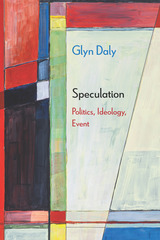
In a confrontation with today’s fatalistic milieu, principal emphasis is given to Hegel’s idea of infinity as the intrinsic dimension of negativity within all finitude. Against the modern era’s paradigmatic tendency to externalize social problems in the form of antagonism and Otherness, Daly argues for a renewal of utopian thought based on Hegelian reconciliation and the affirmation of excess as the essence of all being. On these grounds, he advances a new kind of political imagination that in speculative terms centers on uncompromising notions of truth and reason.
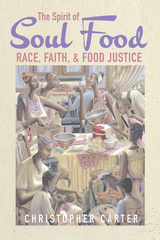
Soul food has played a critical role in preserving Black history, community, and culinary genius. It is also a response to--and marker of--centuries of food injustice. Given the harm that our food production system inflicts upon Black people, what should soul food look like today?
Christopher Carter's answer to that question merges a history of Black American foodways with a Christian ethical response to food injustice. Carter reveals how racism and colonialism have long steered the development of US food policy. The very food we grow, distribute, and eat disproportionately harms Black people specifically and people of color among the global poor in general. Carter reflects on how people of color can eat in a way that reflects their cultural identities while remaining true to the principles of compassion, love, justice, and solidarity with the marginalized.
Both a timely mediation and a call to action, The Spirit of Soul Food places today's Black foodways at the crossroads of food justice and Christian practice.

This literally "refreshing" collection is based on the notion that the future of bioethics is inseparable from its past. Seminal works provide a unique and relatively unexplored vehicle for investigating not only where bioethics began, but where it may be going as well. In this volume, a number of the pioneers in bioethics—Tom Beauchamp, Lisa Sowle Cahill, James Childress, Charles E. Curran, Patricia King, H. Tristram Engelhardt, William F. May, Edmund D. Pellegrino, Warren Reich, Robert Veatch and LeRoy Walters—reflect on their early work and how they fit into the past and future of bioethics. Coming from many disciplines, generations, and perspectives, these trailblazing authors provide a broad overview of the history and current state of the field. Invaluable to anyone with a serious interest in the development and future of bioethics, at a time when new paths into medical questions are made almost daily, The Story of Bioethics is a Baedeker beyond compare.

Based on eight years of hands-on experience and more than 300 interviews, Street Saints is both a book of motivational stories about unsung heroes and a sociological study of the "faith factor," documenting faith-based programs that are treating social maladies in America. This book takes readers on a tour of communities and institutions in America where faith-based initiatives are making a difference. It offers inspiration, role models, and guidelines for people who would like to give back to their own communities.

Winner of the 2022 Catholic Media Association Award in Theology
A new ethics for understanding the social forces that shape moral character.
It is easy to be vicious and difficult to be virtuous in today’s world, especially given that many of the social structures that connect and sustain us enable exploitation and disincentivize justice. There are others, though, that encourage virtue.
In his book Daniel J. Daly uses the lens of virtue and vice to reimagine from the ground up a Catholic ethics that can better scrutinize the social forces that both affect our moral character and contribute to human well-being or human suffering.
Daly’s approach uses both traditional and contemporary sources, drawing on the works of Thomas Aquinas as well as incorporating theories such as critical realist social theory, to illustrate the nature and function of social structures and the factors that transform them. Daly’s ethics focus on the relationship between structure and agency and the different structures that enable and constrain an individual’s pursuit of the virtuous life. His approach defines with unique clarity the virtuous structures that facilitate a love of God, self, neighbor, and creation, and the vicious structures that cultivate hatred, intemperance, and indifference to suffering. In doing so, Daly creates a Catholic ethical framework for responding virtuously to the problems caused by global social systems, from poverty to climate change.
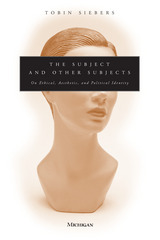
Tobin Siebers raises a series of questions that "cross the wires" among ethical, aesthetic, and political definitions of the self, at once exposing our basic assumptions about these definitions and beginning the work of reconceiving them. The Subject and Other Subjects will broaden our ideas about the strange interplay between subjects and objects (and other subjects!) that characterizes modern identity, and so provoke lively debate among anthropologists, art historians, literary theorists, philosophers, and others concerned with how the question of the subject becomes entangled with ethics, aesthetics, and politics. As Siebers argues, the subject is in fact a tangled network of subjectivities, a matrix of identities inconceivable outside of symbols and stories.
Tobin Siebers is Professor of English at the University of Michigan, and author of Cold War Criticism and the Politics of Skepticism; Morals and Stories; The Ethics of Criticism; The Romantic Fantastic; and The Mirror of Medusa.

One of Library Journal's Top 20 Best-Selling Language Titles of 2019
In an ethnographic study spanning the last years of research collaborator and friend Susan Lundy Maute’s life with terminal breast cancer, author Jessica Restaino argues the interpretative challenges posed by research and writing amid illness and intimacy demand a methodological break from accepted genres and established practices of knowledge making. Restaino searches their experiences—recorded in interviews, informal writings, and correspondence—to discover a rhetoric of love and illness. She encourages a synthesis of methods and the acceptance of a reversal of roles—researcher and researched, writer and written-about—and emphasizes the relevancy of methodological diversity, the necessity of the personal, and the analytical richness of unpredictability and risk in being who we are in our scholarship at any given moment.
Bringing together critical analysis, qualitative-style research methods, close reading, Surrender: Feminist Rhetoric and Ethics inLove and Illness resists traditional ideas about academic writing and invites others to pursue collaborations that subvert accepted approaches to representation, textual production, and subjectivity. Restaino demonstrates a way of writing—the rendering of the academic text itself—that suggests how we do our work has resonance for what we produce. She offers framing questions for use by others interested in doing similar kinds of scholarship that may frighten, overwhelm, or confound. This book deepens our understanding of subjectivity and the gains made by feminist resistance to conventional concepts of objectivity in research collaborations.
READERS
Browse our collection.
PUBLISHERS
See BiblioVault's publisher services.
STUDENT SERVICES
Files for college accessibility offices.
UChicago Accessibility Resources
home | accessibility | search | about | contact us
BiblioVault ® 2001 - 2024
The University of Chicago Press









